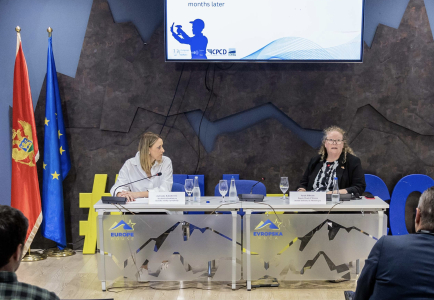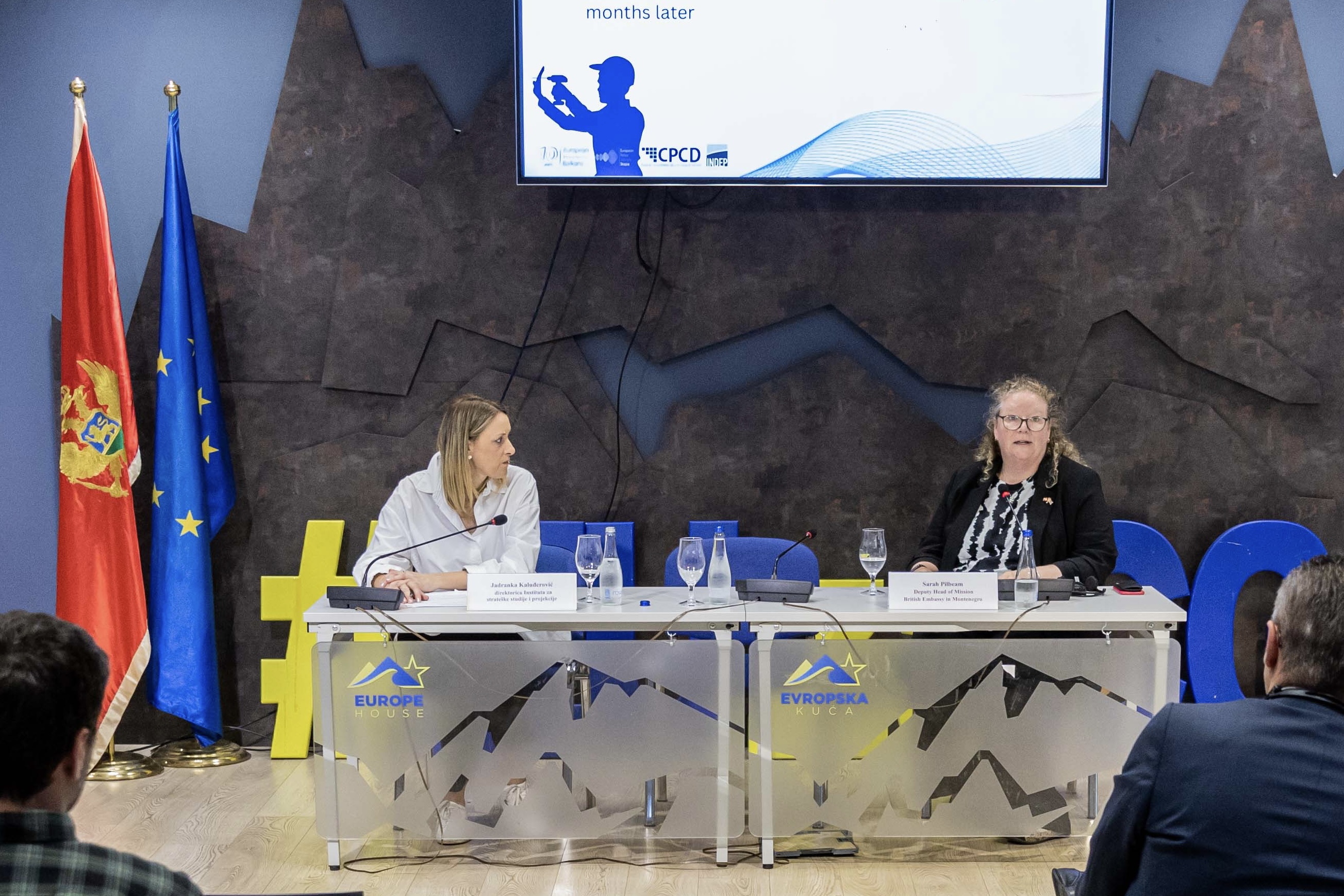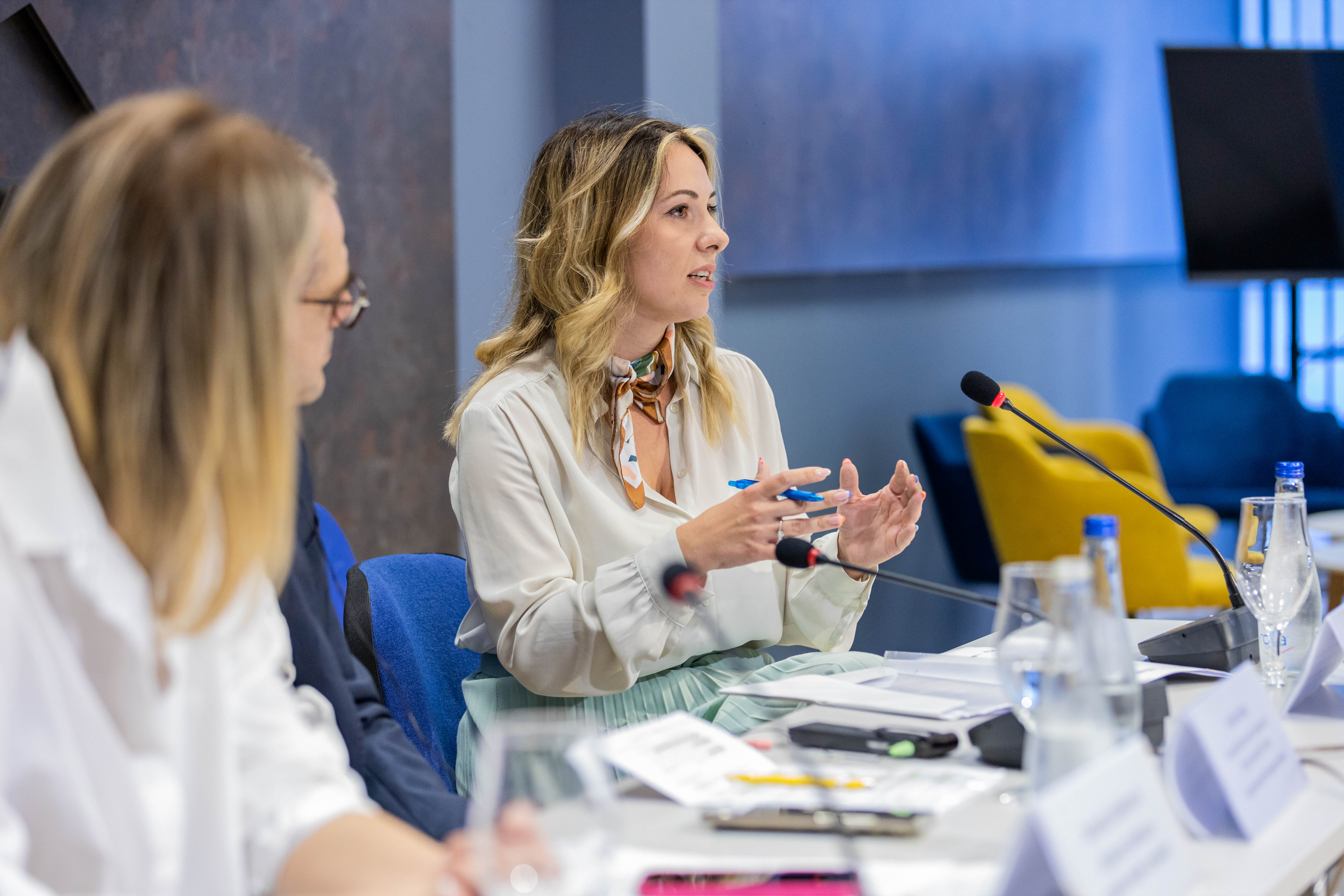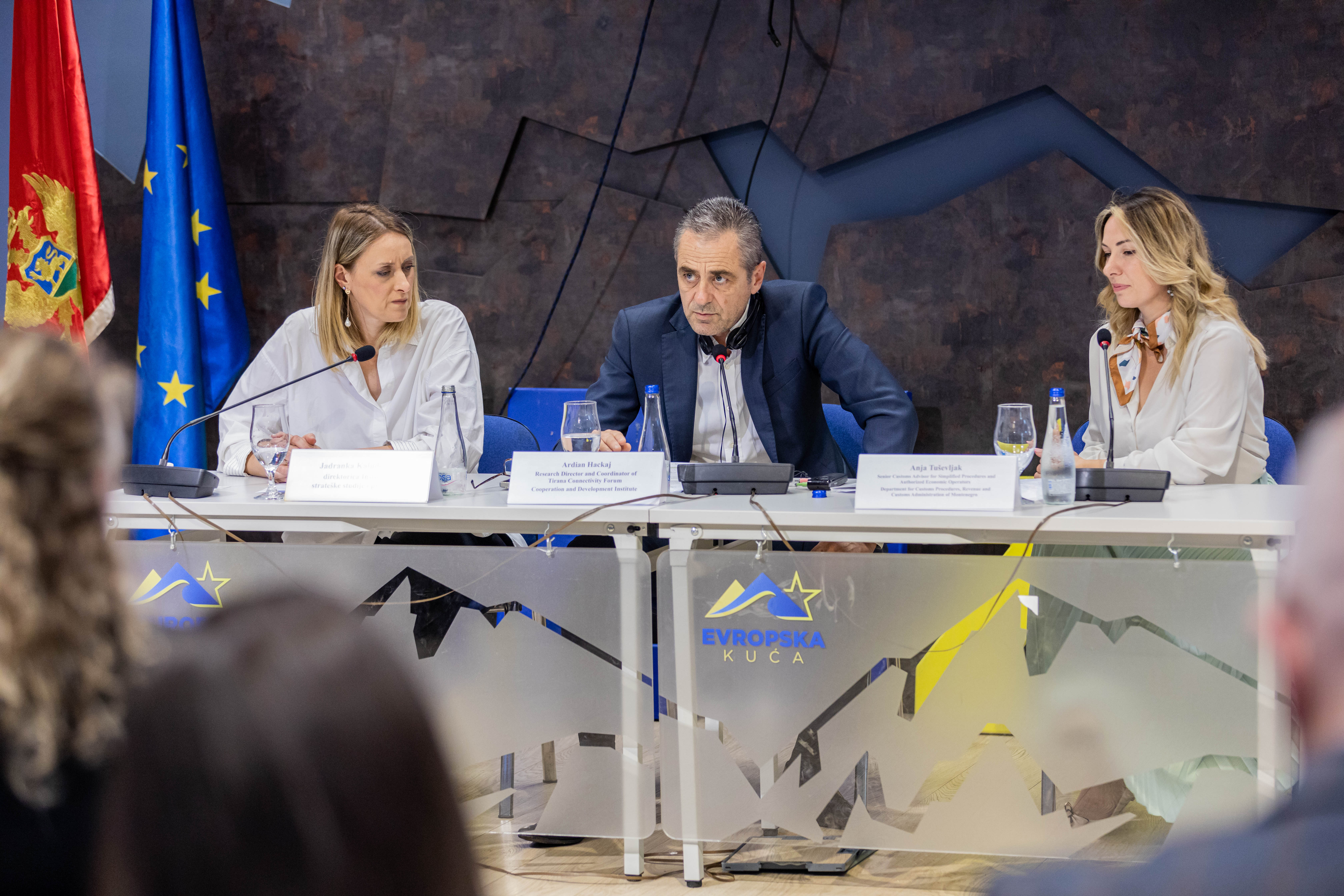Loading



The Institute for Strategic Studies and Projections (ISSP) successfully hosted the roundtable “Enhancing Regional Cooperation 2.0: Montenegro and CEFTA – Eight Months After the Signing” on 29 May 2025 at Europe House in Podgorica.
This was one of six events organized across the capitals of the SEE6 region between 21 and 29 May, aimed at tracking the progress of CEFTA agreements adopted in October 2024 and supporting the region’s continued path toward deeper EU integration, in line with the Common Regional Market (CRM) agenda and the Berlin Process.
Opening the Dialogue: Institutional Transparency and Reform Implementation
The discussion was opened by ISSP Executive Director Jadranka Kaludjerović, who emphasized the importance of institutional transparency and sustained public dialogue in turning regional agreements into reforms that directly benefit citizens and businesses. She also called for stronger inter-institutional coordination and a more inclusive policy space for civil society participation in all stages of implementation.
Special remarks were delivered by Ms. Sarah Pilbeam, Deputy Head of Mission at the British Embassy in Podgorica. Representing the host country of the 2025 Berlin Process Summit, Ms. Pilbeam reaffirmed the United Kingdom’s continued commitment to stability and prosperity in the Western Balkans through deeper economic integration and full implementation of CRM and CEFTA measures.
From Agreement to Action: Institutional Challenges and the Way Forward
The panel discussion, titled “Montenegro’s Institutional Capacity for Implementing CEFTA Agreements”, brought together institutional representatives, technical experts, and civil society stakeholders, including Marko Mandić from the CEFTA Secretariat, Anja Tuševljak from Montenegro’s Revenue and Customs Administration, and Ardian Hackaj from the Cooperation and Development Institute (CDI). Panelists discussed both achievements and ongoing challenges in implementing CEFTA agreements.
Among the key issues raised were the fragmentation of responsibilities across institutions—where some agreements fall under the remit of a single ministry, while others require coordination between ministries and agencies, often without clearly defined mandates. Frequent structural changes in public administration, such as the merging or splitting of ministries, along with high staff turnover, were also highlighted as obstacles. These dynamics disrupt continuity, slow reform momentum, and require repeated efforts to build institutional memory and coordination.
Additional challenges include complex interministerial consultations, protracted ratification processes, and limited availability of timely and accessible public information. Using the example of the Authorized Economic Operator (AEO) program, participants illustrated how businesses can benefit from faster customs procedures across the region—but only if implementation bottlenecks are resolved. As one participant noted: “For the private sector, time is money.”
The roundtable confirmed that CEFTA agreements and the Common Regional Market represent some of the most important regional cooperation and national reform processes. Participants called for continued dialogue in similar formats to ensure transparency, information sharing, and tracking of implementation efforts.
This event was part of the broader regional initiative “Channeling SEE6 Civil Society Contribution to the Common Regional Market and Berlin Process”, implemented by ISSP in partnership with CDI and regional partners, and supported by the German Federal Foreign Office. The initiative promotes inclusive policymaking and aims to strengthen public engagement in regional economic integration and EU alignment.
The roundtable in Podgorica was held in the lead-up to the 11th Tirana Connectivity Forum (16–17 September 2025) and the 2025 Berlin Process Summit in the United Kingdom.

